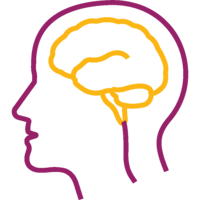
Monday, 2 September, 2024
Digestive health is a cornerstone of overall well-being. The digestive system is a complex network that processes food, absorbs nutrients, and eliminates waste. When it functions smoothly, you may not give it much thought. However, when digestive issues arise, they can disrupt your daily life and significantly impact your quality of life.
From occasional discomfort like bloating or indigestion to chronic conditions like irritable bowel syndrome (IBS) or gastroesophageal reflux disease (GERD), digestive problems are common and can be frustrating to manage. The good news is that many digestive disorders can be effectively treated and managed with the right approach. In this blog, we'll explore common digestive disorders, their effective treatments, and practical strategies for improving digestive health.
If you're wondering, "How can I cure digestive problems?" you're not alone. Let's dive into the details and uncover the answers in this comprehensive guide to digestive health.
What is a Digestive Problem?
Digestive problems are disorders that affect the gastrointestinal (GI) tract, including the stomach, intestines, esophagus, and other related organs. These problems can manifest as a variety of symptoms, including discomfort, pain, and more severe health conditions. Digestive problems treatment can vary depending on the specific issue and its severity. Understanding these symptoms and their underlying causes is the first step in effective management and treatment. Some digestive issues are relatively benign and can be managed with lifestyle and dietary changes, while others may require medical intervention.
Most Common Digestive Problems
Several common digestive problems can affect individuals of all ages. Here, we delve into some of the most prevalent digestive disorders and their implications.
Irritable Bowel Syndrome (IBS)
Irritable Bowel Syndrome (IBS) is a functional gastrointestinal disorder characterized by a range of symptoms, including abdominal pain, bloating, and changes in bowel habits, such as diarrhea or constipation. IBS affects a significant portion of the population and can impact daily life and well-being. Managing IBS problems often involves a combination of dietary changes, medications, and stress management.
Causes and Risk Factors:
- Abnormal gut motility: Irregular contractions in the intestines can cause symptoms.
- Increased sensitivity: The gut may be more sensitive to normal digestive processes.
- Stress: Emotional stress can exacerbate symptoms.
Heartburn/Acid Reflux
Heartburn, or acid reflux, occurs when stomach acid flows backward into the esophagus, causing a burning sensation in the chest or throat. This condition is commonly experienced after eating and can be indicative of gastroesophageal reflux disease (GERD) if it occurs frequently.
Causes and Risk Factors:
- Weak lower esophageal sphincter: This muscle may not close properly, allowing acid to escape.
- Certain foods and drinks: Spicy, fatty, or acidic foods, as well as caffeine and alcohol, can trigger symptoms.
- Obesity: Excess weight can put pressure on the stomach, leading to reflux.
Constipation
Constipation is a common digestive issue characterized by infrequent bowel movements, difficulty passing stool, or a feeling of incomplete evacuation. It can significantly impact comfort and daily functioning.
Causes and Risk Factors:
- Low fiber intake: A diet low in fiber can contribute to constipation.
- Inadequate fluid intake: Not drinking enough water can lead to hard, dry stools.
- Sedentary lifestyle: Lack of physical activity can slow down bowel movements.
Diarrhea
Diarrhea involves frequent, loose, or watery stools and can be caused by various factors, including infections, dietary intolerances, or chronic conditions like IBS or inflammatory bowel disease (IBD). Persistent diarrhea can lead to dehydration and other complications.Managing diarrhea problems involves addressing the underlying cause. For infections, staying hydrated and using oral rehydration solutions can prevent dehydration.
Causes and Risk Factors:
- Infections: Viral, bacterial, or parasitic infections can cause acute diarrhea.
- Food intolerances: Lactose intolerance or sensitivity to certain foods can lead to diarrhea.
- Chronic conditions: IBS and IBD can cause ongoing symptoms.
Gas and Bloating
Gas and bloating are common symptoms often associated with digestion. Gas Problems can result from swallowed air or the breakdown of certain foods in the gut, while bloating is a sensation of fullness or swelling in the abdomen.
Causes and Risk Factors:
- Dietary factors: Foods such as beans, cabbage, and carbonated drinks can contribute to gas.
- Digestive disorders: Conditions like IBS or food intolerances can exacerbate symptoms.
- Swallowed air: Eating quickly or chewing gum can lead to increased gas.
Inflammatory Bowel Disease (IBD)
Inflammatory Bowel Disease (IBD) encompasses chronic inflammatory conditions of the GI tract, primarily Crohn’s disease and ulcerative colitis. IBD involves inflammation and ulceration of the digestive tract, leading to symptoms such as abdominal pain, diarrhea, weight loss, and fatigue.Gastrointestinal disease treatment for IBD often involves a combination of medications, dietary changes, and lifestyle adjustments.
Causes and Risk Factors:
- Genetic factors: A family history of IBD increases the risk.
- Immune system response: Abnormal immune responses may contribute to inflammation.
- Environmental factors: Certain environmental triggers, such as infections or dietary factors, may play a role.
If you're experiencing persistent or severe digestive issues, consulting a gastroenterologist in Bangalore can provide you with expert guidance and tailored treatment plans to address your specific concerns.
What is the Effective Treatment for Digestive Problems?
Effective treatment for digestive problems often requires a comprehensive approach. This includes dietary adjustments, lifestyle changes, medical treatments, and natural remedies tailored to the individual's needs.
Dietary Adjustments
Dietary modifications are a cornerstone of managing many digestive problems. For conditions like IBS, a low-FODMAP diet can be effective. This diet restricts certain types of carbohydrates that are poorly absorbed in the small intestine. For acid reflux problems and gastric reflux, avoiding trigger foods and eating smaller, more frequent meals can help manage symptoms. Increasing fiber intake is beneficial for constipation problems, while reducing intake of gas-producing foods can alleviate bloating problems.
Lifestyle Changes
Lifestyle modifications can significantly impact digestive health. Regular physical activity promotes healthy bowel function and can alleviate symptoms of constipation and bloating. Establishing a consistent eating schedule and avoiding large meals close to bedtime can help manage symptoms of acid reflux problems. Stress management techniques, such as mindfulness and relaxation exercises, can also play a crucial role in managing digestive issues, especially in conditions like IBS.
Medical Treatments
Medication for digestive problems is often necessary for managing chronic or severe digestive issues. For IBS, medications such as antispasmodics, laxatives, or antidiarrheals may be prescribed based on symptoms. Acid reflux problems are commonly treated with over-the-counter antacids or prescription medications that reduce stomach acid production, such as proton pump inhibitors (PPIs) and H2-receptor antagonists. In cases of IBD, treatment may involve anti-inflammatory drugs, immunosuppressants, or biologics to control inflammation and manage symptoms.
Natural Remedies
Natural remedies can complement traditional treatments and provide relief for some digestive issues. Probiotics, found in yogurt and supplements, are often considered one of the best treatments for digestive problems as they support gut health and alleviate symptoms of IBS. Additionally, herbal remedies like ginger and peppermint tea are well-known for helping to reduce nausea, gas, and bloating. However, it's important to consult a healthcare provider before starting any new natural remedies to ensure they are appropriate for your specific condition and are integrated into the best treatment plan for your digestive problems.
How to Improve Your Digestive Health?
Improving digestive health involves adopting healthy habits and making lifestyle changes that support overall well-being. By focusing on these key practices, you can enhance gut health, prevent digestive problems, and answer the common question, "How to make the digestive system strong?"
Eat a Balanced Diet
A balanced diet that includes a variety of fruits, vegetables, whole grains, and lean proteins supports digestive health. Best food for digestion problems includes fiber-rich foods that help promote regular bowel movements and prevent constipation. Avoiding excessive consumption of processed foods and sugary snacks can also benefit digestive health. Eating a diet rich in nutrients and low in substances supports overall digestive function and can help prevent many common digestive problems.
Stay Hydrated
Proper hydration is essential for healthy digestion. Drinking plenty of water helps maintain bowel regularity and prevents constipation. Adequate fluid intake also supports the digestive system's ability to process and absorb nutrients effectively. Aim for at least 8 glasses of water per day, and increase your intake if you are physically active or experiencing digestive issues.
Manage Stress
Stress management is crucial for maintaining digestive health, as stress can exacerbate symptoms of conditions like IBS and acid reflux problems. Incorporate relaxation techniques such as mindfulness, meditation, and deep breathing exercises into your daily routine. Engaging in regular physical activity, pursuing hobbies, and spending time with loved ones can also help reduce stress levels and support a healthy digestive system.
Get Enough Sleep
Adequate sleep is vital for overall health, including digestive health. Poor sleep can disrupt digestion and exacerbate symptoms of digestive disorders. Aim for 7-9 hours of quality sleep each night to support your body's natural processes and improve digestive function. Establishing a regular sleep routine and creating a restful sleep environment can contribute to better sleep and overall digestive health.
Avoid Smoking and Excessive Alcohol
Smoking and excessive alcohol consumption can negatively impact digestive health. Smoking increases the risk of acid reflux problems and can contribute to the development of ulcers. Excessive alcohol can irritate the digestive tract and exacerbate conditions like GERD and IBD. Reducing or eliminating smoking and alcohol consumption can benefit your digestive system and overall health.
Conclusion
Managing digestive problems effectively requires a comprehensive approach that includes dietary adjustments, lifestyle changes, medical treatments, and natural remedies. By understanding common digestive disorders and implementing strategies to improve stomach health, you can enhance your quality of life and prevent or alleviate symptoms. Always consult with a healthcare professional for personalized advice and treatment options tailored to your specific needs. Adopting healthy habits and seeking appropriate treatment can lead to improve digestive system and overall well-being. For specialized care, consider visiting a reputable gastroenterology hospital in Bangalore to address your stomach problems effectively.
FAQs
How do you fix digestive issues?
Digestive problems can often be solved by making dietary adjustments, staying hydrated, managing stress, and incorporating regular exercise into your routine. For more severe issues, consult a healthcare provider for appropriate medical treatments.
How to improve gut health?
While some digestive problems can be managed or even cured through lifestyle changes and medical treatment, chronic conditions like IBS or IBD may require ongoing management.
How to improve digestive health
Best way to improve gut health is by eating a balanced diet rich in fiber, probiotics, and water can improve digestion. Foods like yogurt, leafy greens, and whole grains are particularly beneficial.
What are common digestive problems?
Irritable Bowel Syndrome (IBS) is one of the most common digestive disorders, affecting millions of people worldwide.
Author doctor name
Consultant - Gastroenterology, Hepatology and Interventional Endoscopy
MBBS, MD in General Medicine, DM(Fellow) in Gastroenterology, Fellowship in ESD & EUS(Japan)


 Neurosciences
Neurosciences Bariatric Surgery
Bariatric Surgery